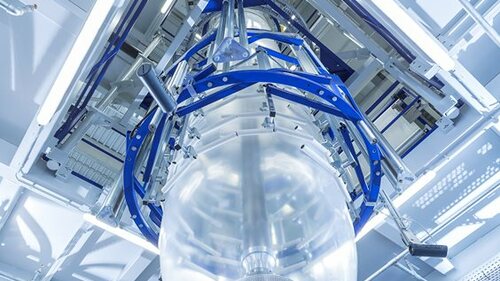
INEOS Olefins & Polymers Europe has announced a multi-million Euro investment in technology that will enable the development of simpler, more recyclable flexible packaging film. The investment aims to prevent around one million tonnes of waste from going to landfill each year. The company will work with converters, brands, and retailers to produce polyethylene and polypropylene-based flexible packaging film using fewer polymers, increasing recyclability. The new technology will be installed in INEOS' R&D labs in Brussels in 2023, where the company will develop new mono-material flexible film packaging products.
INEOS Olefins & Polymers Europe has announced today a multi-million Euro investment in state-of-the-art technology that will enable it to work with converters, brands and retailers to develop simpler, more recyclable flexible packaging film. The investment could help to prevent around one million tonnes of waste from being sent to landfill each year1.
Using new multilayer, blown line technology with Machine Direction Orientation (MDO), INEOS and partners will work together to develop, design and produce polyethylene and polypropylene-based flexible packaging film using fewer polymers, increasing the recyclability of the product.
Flexible packaging films are a low carbon solution for transporting food and other goods; and they increase food shelf life, helping consumers to manage household bills. However today’s multi-material products combine polymers from different chemical families, making them difficult to recycle. Reducing the number of polymers used to produce packaging film will make packaging that is designed to be recycled.
INEOS is the only raw material supplier to have invested in an inline MDO-multilayer line from Hosokawa Alpine, a pioneer in MDO technology, which heats and stretches polymer films to improve their physical and barrier properties, enabling them to be used in different product applications.
The new line will be installed in INEOS’ R&D labs in Brussels, Belgium, in 2023, where INEOS will develop new, mono-material flexible film packaging products. INEOS will leverage this capability and its expertise in resin design to work alongside partners on new generations of resins specially engineered for their flexible packaging products.
Rob Ingram, Chief Executive, INEOS O&P Europe North, said: “This investment is further evidence of our commitment to taking action across the value chain to create a more sustainable future. Flexible packaging films keep our food fresh and safe to eat, but we recognise and share people’s concerns about plastic waste.”
“I’m excited about the prospect of working closely with our partners to use this world-leading technology to develop new capabilities and a more recyclable solution for this important product.”